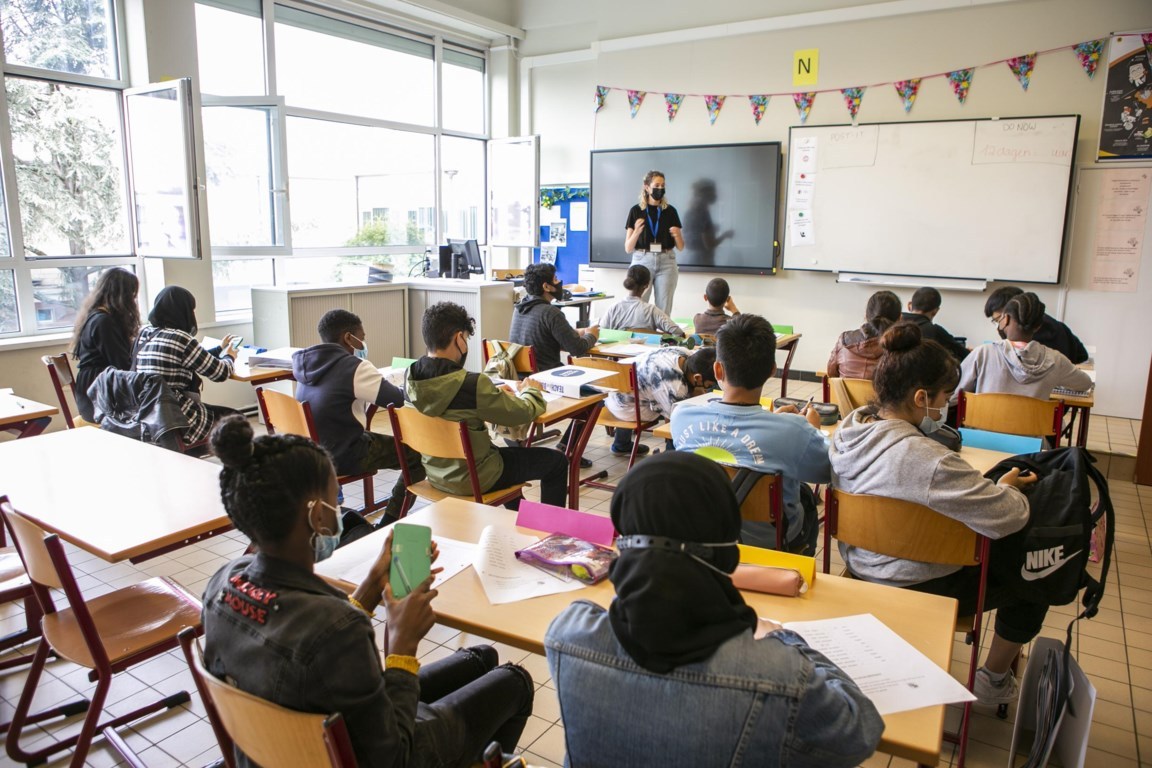Schools across Belgium are facing a grim situation, as more and more staff and students test positive for the coronavirus and prompt class-wide quarantines.
“The situation has worsened considerably over the past two weeks,” Etienne Michel, director-general of Segec (Secrétariat général de l'enseignement catholique), told Bel RTL on Wednesday morning.
For the French-speaking Catholic education sector, “about a hundred schools” and “about ten secondary schools” are closed: “We are now at 28% of pupils absent and 21% of teachers, in basic education.”
In Flemish education, school inspectors have had to step into the classroom as substitute teachers to make up for the shortage of instructors, pausing all school inspections and putting “all hands on deck.”
Calls for changes to measures for schools
Belgium’s education ministers have called for the relaxation of the quarantine rules for pupils and teachers, asking that only infected people be made to stay home as schools succumb to a rapid rise in cases.
Rules were slightly relaxed two weeks ago, after the number of infections among school-aged children doubled just one week.
Related News
- Education ministers also call for relaxed quarantine measures in schools
- Teacher training reforms in Wallonia postponed until 2023
Health ministers met this Wednesday with their counterparts in charge of education to consider changing the health rules for schools, which increasingly appear untenable as the omicron variant rips through the country.
No progress was made, but Michel said that a relaxation of rules wouldn’t be enough to solve the problem of replacing absent teachers anyways, as the process currently takes too long.

Credit: Belga
Strict rules for licensing make it hard to find substitute teachers
“In secondary schools there are problems with licenses. We could decide to temporarily suspend the application of extremely rigid rules” on these, suggested Michel.
Schools had long been warning that the rules regarding quarantining classes would lead to massive problems.
The coronavirus-related absences come at a time when the education sector was already struggling with teacher shortages.
While seemingly less severe than other variants of the coronavirus, Omicron spreads more easily and has led not only to teacher shortages, but also to labour shortages for businesses, public transit, daycare and residential care centres.

